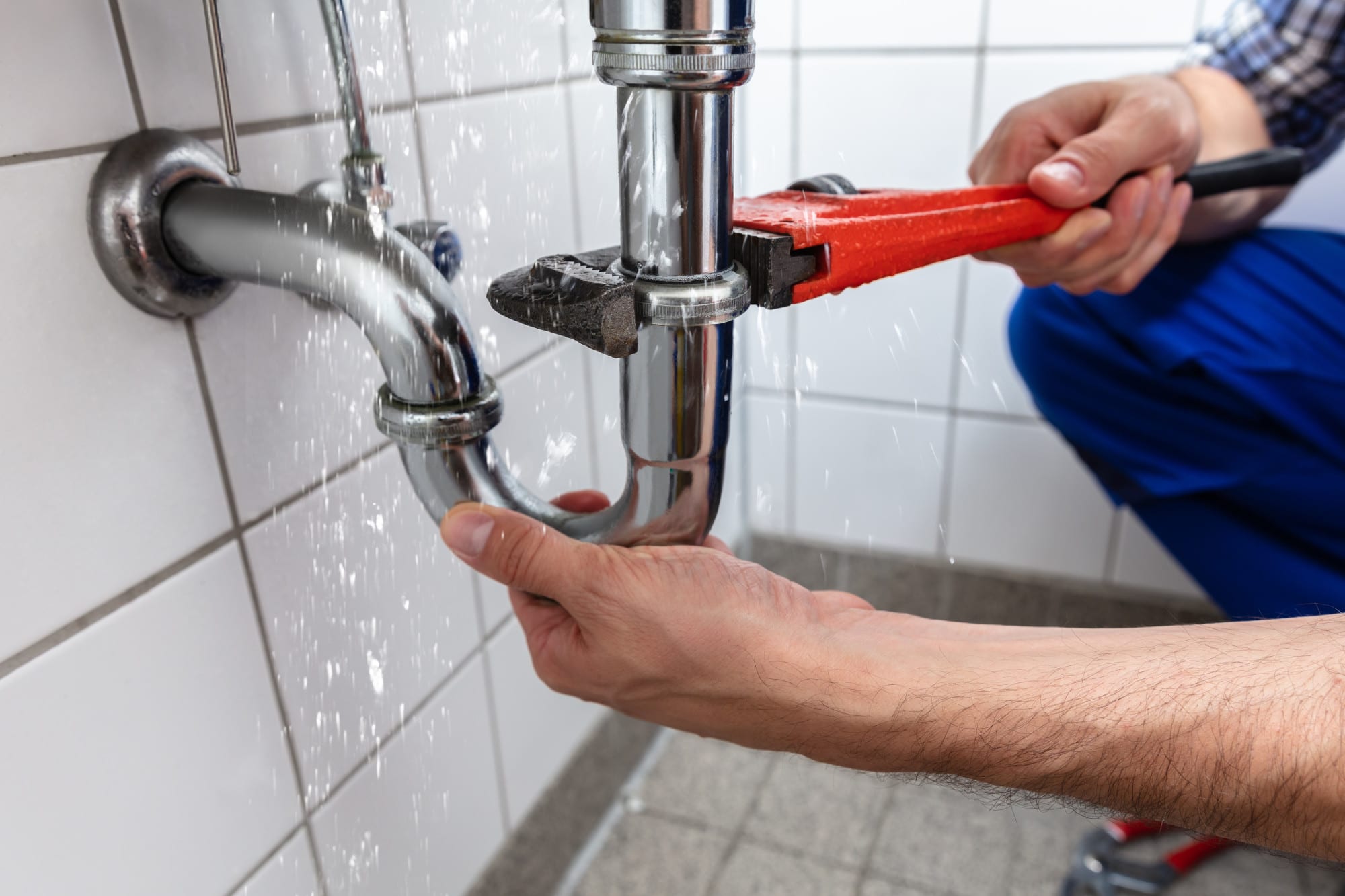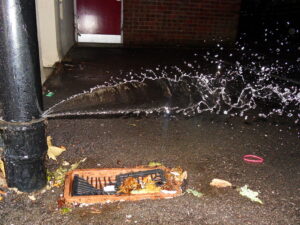Essential Advice for Septic Tank Maintenance: Everything You Should Know
Essential Advice for Septic Tank Maintenance: Everything You Should Know
Blog Article
Listed here down the page yow will discover more brilliant material relating to The Do’s And Don’ts After Water Damage.

What should you do if a water pipeline ruptureds in your residence? The longer you wait, the a lot more serious the damage that can happen to your property. For these factors, you need to learn how to act in the occasion of a ruptured water pipe.
Shut Off the Key Waterline Valve
The first thing to do? Shut the shut-off valve. Look for the neighborhood shut-off valve to turn off the water in one details area just. If you do not know where the local shut-off valve is, go for the major water line valve and also turn it off. This step will certainly cut off the water immediately in your entire house. Generally, the primary valve is discovered outside the home beside the water meter. If it's not there, you can also locate it in two areas: in the basement at eye degree or the 1st flooring on the ground. Generally, home builders put the shut-off shutoff in the main ground degree bathroom or right alongside it.
Call Water Damages Remediation Pros for Aid
After closing the water resource, call the experts for assistance. With their professional assistance, you can avoid much larger water damage consisting of deformed walls, loosened tiles, or harmed frameworks.
File the Damage For Insurance
While you're waiting for the pros to get here, obtain some documentation of the damage created by the errant pipe. Do close-up shots of the harmed areas and prized possessions.
Recover Things That Can Be Saved
As soon as you're done taking images, analyze the damaged products and take out one of the most essential ones from the pile. Dry them off in a dry/warm place far from the damaged location and attempt to preserve them as high as you can. Drag as much moisture as you can to the product so it can begin to dry.
Start the Drying Refine
You need to begin the drying process immediately. Thankfully, the water from your waterlines is already tidy so you don't need to worry about sewage system water. The moving water may have interrupted the dust as well as particles in your floorboards and also rugs. In this instance, put some gloves on and also start some damage control. Usage buckets to unload out the water. Blot out as much water as you can from the surface areas with old towels. Activate an electric follower or open your home windows to promote air flow. These actions will quicken to completely dry and also deter mold and also mildew growth.
Professionals are the only people certified to analyze correctly and repair the burs pipelines and also succeeding damages. As always, pipes don't just unexpectedly break out of the blue. They normally offer quiet red flags like gurgling paint, water discolorations. Unusual sounds in the plumbing, caving ceiling, musty odor, or peeling wallpaper. Keep in mind of these indications as well as do some safety nets so you can nip any kind of concerns in the bud.
What should you do if a water pipeline ruptureds in your home? For these reasons, you need to discover exactly how to act in the event of a burst water pipeline. After closing the water resource, call the specialists for aid. With their specialist aid, you can protect against a lot bigger water damages consisting of distorted baseboards, loose ceramic tiles, or damaged structures. Luckily, the water from your waterlines is currently clean so you don't have to worry about sewer water.
BROKEN WATER PIPES: COST TO REPLACE & WAYS TO FIX A PIPE
CAUSES OF A BROKEN WATER PIPE
A water pipe can break for several reasons depending on the environment you live in, type of pipe, and circumstances.
The most common cause of broken pipes is freezing. If you live in a colder climate, this could happen. When water freezes it increases in volume by 9% and the pressure in the pipes can go from 40 psi to 40,000 psi. Clearly, this could be detrimental to the pipes. Water freezing causes quick expansion, which puts stress on the pipes and could lead them to crack or weaken. When water thaws, it will leak out the cracks. Other changes in water pressure can also cause breakage. Another common cause of broken water pipes is age.
Depending on the material, water pipes can last anywhere from 70-100 years. But the older they get, the more susceptible they are to weakening and corroding. Older pipes coming into contact with another material could speed up the corrosion process as well. PVC pipes can become brittle with age, while copper is prone to corrosion and stress over time. Something that could also potentially break water pipes is when they move. They may move from construction or the house settling. Moving can stress the fixed pipe which may lead to a leak or burst pipe.
HOW MUCH WATER COULD LEAK INTO YOUR HOUSE FROM A BROKEN PIPE?
The amount of water that leaks depend on how big the break in a pipe is. If it is just a minor crack, water will slowly leak out. This isn’t as serious as a full broken pipe, but it can still cause significant damage to your home. Burst pipes can leak up to 10 gallons of water per minute. The amount of water leaked also depends on what appliance is involved. The water line to your refrigerator can leak ½ to 1 gallon per minute depending on water pressure. One toilet supply line may leak 2-3 gallons a minute and a washing machine hose will leak up to 10-12 gallons per minute.
TURN THE WATER OFF
Doing this first is imperative; everything else can wait. You need to deactivate the water supply to stop the flow of water and prevent more water from leaking into your home. Shutting off the water could potentially save you thousands in water damage repairs. Locating the water shutoff valve depends on the climate you live in. For colder climates, the valves are usually inside, such as in the basement. For houses in milder weather, the shutoff valves will probably be outside—either attached to an exterior wall or in an underground box with a removable lid.
OPEN A FAUCET
The next thing to do is to open a faucet or turn on a sink. This will relieve any remaining water pressure in the pipes and ensure a full-shut down.
GET RID OF THE WATER
The quicker you get rid of the water, the less water damage and mold there could be. Use a mop and a shop vacuum to help get clean up the water. Use towels to dry everything the best you can.
CUT AND REMOVE THE DAMAGED PIPE
Once you have shut off the water and drained the damaged water pipe, you can begin to fix the issue. Cut out the damaged section of the pipe with a pipe cutter, ensuring that you also cut one inch extra on each side of the damage. Once you get rid of the broken part of the pipe, you may begin repairs.
https://www.wmhendersoninc.com/blog/broken-water-pipes-cost-to-replace-ways-to-fix-a-pipe/

We were introduced to that article about The Do’s And Don’ts When Water Floods Your Home from a friend on a different web blog. Are you aware of another individual who is sincerely interested in the subject? Do not hesitate to share it. I cherish reading our article about Rules For Handling Water Damage.
Report this page